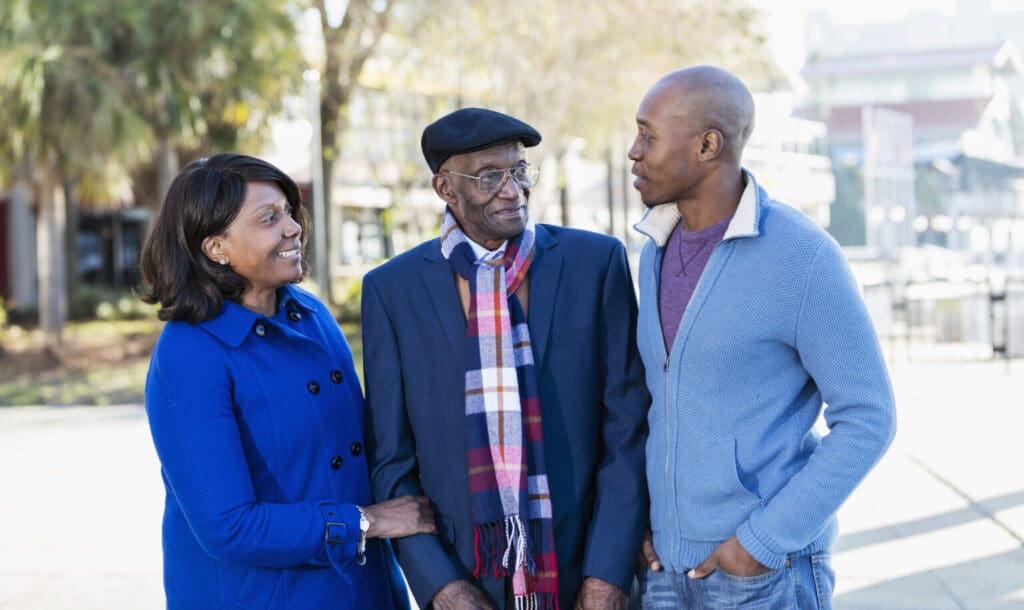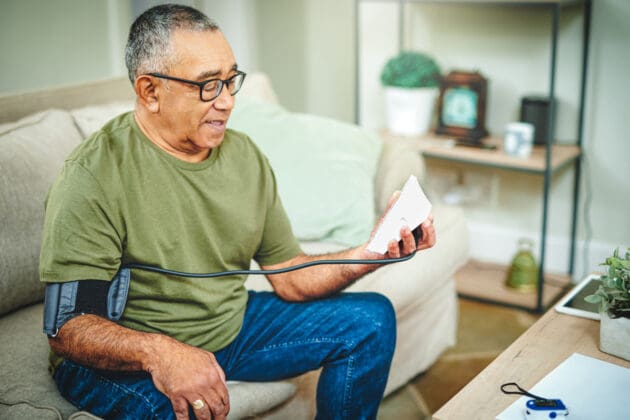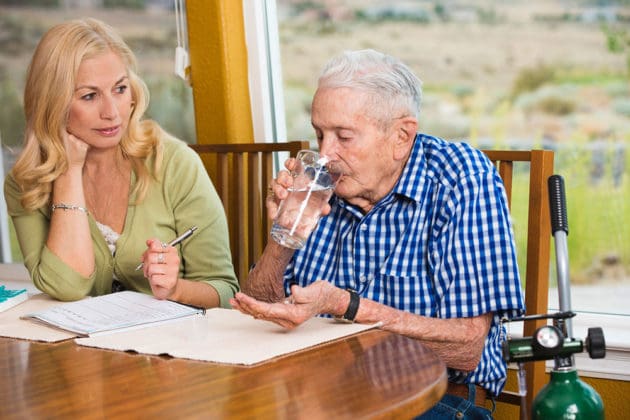
When someone you love is diagnosed with Alzheimer’s disease or another type of dementia, you may be overwhelmed and may find it hard to keep up with all the different terms. You want to know what to expect — and what your loved one’s doctor is saying — so it can be helpful to learn some terms about dementia.
Knowing common terms can help you communicate clearly with your loved one and with their medical team. Here are some vocabulary words that every caregiver should know.
Condition Terms
Alzheimer’s Disease
Alzheimer’s disease is a brain disorder that affects the ability to think and remember — so much so that it eventually makes daily tasks difficult or impossible. It is progressive, meaning it gets worse over time. Most people tend to develop symptoms during their 60s, but early-onset dementia can affect people as young as 30.
Dementia
Although you may often hear dementia used as a synonym for Alzheimer’s disease, dementia itself is not a specific disease or diagnosis. Dementia is a general term to describe a loss of memory and thinking abilities. Dementia has many causes. Symptoms usually develop gradually, and they can vary considerably from one type of dementia to another.
Caring for a loved one with Alzheimer’s disease or another type of dementia is tough. VNS Health offers specialized home care services to help your loved one feel safe in the comfort of their home.
Frontotemporal Dementia
A fairly rare type of dementia, frontotemporal dementia can affect people as young as 40. It is caused by nerve damage in the frontal (in the front) and temporal (by the ears) parts of the brain. These brain regions regulate personality and behavior, so this type of dementia can cause inappropriate or impulsive behavior or emotional responses. It can also affect language and putting words together.
Lewy Body Dementia
Lewy body dementia is the second most common form of dementia after Alzheimer’s. This kind of dementia is caused by abnormal deposits of a specific protein called alpha-synuclein in the brain. These deposits, known as Lewy bodies, can lead to issues with behavior, thought, movement, and mood due to chemical changes in the brain.
Mixed Dementia
In some instances, a person may have more than one type of dementia, for example Alzheimer’s and vascular dementia. This is more common in people over age 80.
Vascular Dementia
Caused by decreased blood flow in the brain, vascular dementia is usually due to stroke, but diabetes, high cholesterol, high blood pressure, and even smoking are also risk factors. Symptoms depend on which area of the brain is affected and how large that area is.
Caring for a loved one with Alzheimer’s or another type of dementia can be difficult. Let VNS Health help.
Symptoms and Related Terms
Cognitive Impairment
Cognition describes thinking and learning. Cognitive impairment is the term that describes having trouble remembering, problem-solving, making decisions, or following a conversation.
Executive Function
Executive function refers to the cognitive processes used to plan and execute a task. These processes include working memory and concentration. A key component of executive function is the ability to remember where you were in a project after an interruption.
Hallucination
Sensing something that isn’t there is a hallucination. Seeing visions and hearing voices may be most common, but hallucinations of touch, taste, and smell are also possible.
Sundowning
If you are caring for a loved one who has Alzheimer’s, you might notice that their symptoms worsen in the late afternoon or early evening (as the sun is going down). Your loved one might get more confused, restless, or irritable just around the time of day when you are getting tired yourself. No one is 100% sure why sundowning occurs, but you can take steps to prevent and address sundowning symptoms.
Wandering
Wandering sounds like it’s aimless, but people who wander often look very purposeful. To manage it at home, consider creating a wander loop. You may not be able to prevent wandering, so start by having your loved one always wear an ID or medical bracelet, and take time to learn other precautions to protect your loved one from wandering.
Care and Management Terms
Advance Directives
Advance directives are legal documents that outline decisions about someone’s future care in the event that they aren’t able to make medical decisions for themselves. Advance care planning is especially important if your loved one is in the early stages of dementia and is still able to tell you exactly what they want.
Alzheimer’s Disease Stages
Alzheimer’s disease progresses over time — and it’s helpful to know the various stages your loved one might go through:
- Early-stage Alzheimer’s: In the early stage of Alzheimer’s disease, your loved one is still able to live independently. They may not even have a diagnosis yet. This stage is when you might start to notice increased forgetfulness or changes in how they act.
- Middle-stage Alzheimer’s: The middle stage is often the longest one. During this stage, your loved one may struggle more and more with daily tasks and cognitive functions and require more attention and care.
- Late-stage Alzheimer’s: During the last stage of Alzheimer’s disease, your loved one will most likely require 24/7 care because they can no longer complete daily tasks on their own and can’t respond to their surroundings.
Clinical Trials
Medical experts are always doing research to learn more about diseases. One type of medical study that is done with human volunteers is called a clinical trial. Clinical trials can include studies to learn more about new drugs, tests, procedures, prevention strategies, or treatments. Your loved one might want to participate in a clinical trial to try the most cutting-edge approach to care, play a more active role in their care, or contribute to Alzheimer’s research.
Dementia Care
Individuals with dementia need specialized care – and because most dementias are progressive diseases (meaning they get worse over time), their caregivers often require additional support as their loved one’s illness advances. In-home dementia care can be tailored to your loved one’s specific needs. If you are caring for a loved one with dementia, VNS Health offers dementia care and caregiver support as private pay services
Home Health Aides
Home health aides provide nonmedical care. An aide can help your loved one with meals, grocery shopping, and other day-to-day tasks so that they can age comfortably and safely in their own home.


